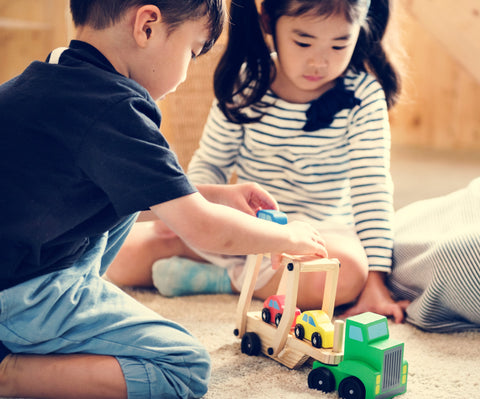
When a child has no friends, it can be very stressful for both the child & the parents.
So what do you do in this situation?
If children like their 'own company' and spending time not socially engaging with others; it is very important to facilitate time like this both at home (quiet space in room) & school (quiet sensory break) as constant social engagement with others can be exhausting - I think everyone can agree with that.
Now consider this for a child who has social skill difficulties; every interaction may cause some feelings of anxiety, conversational skills may not be automatic, they may struggle to follow the conversation when there is a group, they may miss subtle cues and body language to read the situation etc.. All these different aspects & more can make social interactions very complex & exhausting for kids hence why many find it easier to play independently or maybe with one other 'best friend'.
Social skills are a very important part of life and we rely on them heavily throughout our lifespan. Although awareness of differences amongst people is vital, knowing how to navigate a conversation with others can be very important.

Allow kids time to play independently at home especially after intensive social interactions like school, play-dates or clubs.
Keep play dates short & start with just one other child. Maybe add some structured, fun activities if necessary during play-dates & make sure to end the playdate on a FUN note e.g. science experiments, baking, going to playground, an obstacle course or treasure hunt.
If your child is finding it difficult to identify other kids, they would like on a playdate; use your parenting instinct to schedule ones with kids who share similar interests or whose personality may suit your child. This might extend outside of the classroom to extracurricular sports, clubs or parenting groups.
Social stories can be a great way to prep kids for social situations & help them problem solve solutions to hypothetical situations so they feel prepared for unpredictability within the play date. Also decide on comfortable clothing, the snack that will be available, some of the activities that could be played & things that might happen e.g. other child not wanting to play a game or wanting to play with a favourite toy. If your child has a particular favourite toy, I would discuss putting this away during the play-date to ease anxiety or reduce the possibility of a melt-down over it.
Give them a safe word or gesture if they feel overwhelmed so they can have a break, a movie can go on or a structured activity can be completed.
Chat about the play date after the other child has left so everyone can reflect on what worked & what could be improved for the next one e.g. games that were fun, things that upset us or made us laugh. Great opportunity to reflect & move on; not ruminate about it.

In all social interactions, it's vital to respect neurodiversity so if your child is neurodiverse, listen to neurodiverse voices who can educate you about helpful ways to support social interactions and friendships.
Hope you enjoyed this post.
Jess